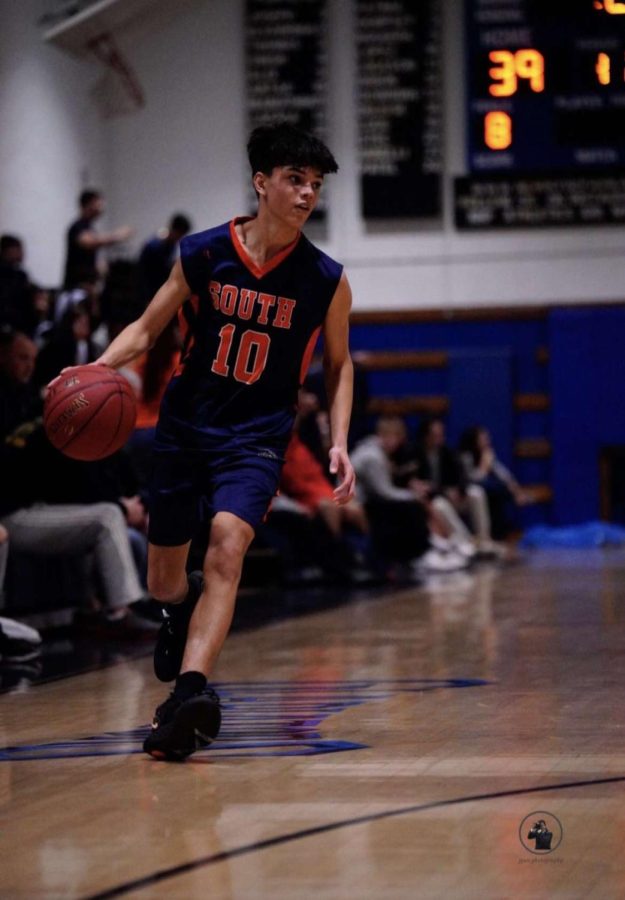By Farah Daredia
On November 3rd, the most important and historic election of our lifetimes will take place. First of all, this election is taking place during a pandemic. If anything’s shown us how much politics can impact our everyday lives, it’s the coronavirus. The pandemic has altered all of our lives in one way or another. For seven months, most of us have experienced awkward zoom calls, extreme boredom, canceled activities, and stuffy masks. But the impact of this crisis stretches far beyond this. Economic issues are widespread: the unemployment rate is over 15%, 10.3% of adults reported that they couldn’t afford enough to eat in the past week, 16% of all adults weren’t caught up on rent, and 1 in 3 adults reported that they had trouble covering household expenses. Too many lives have been lost and too many people have faced health issues: 225,000 Americans have died and 100,000 more are expected to die before the end of the year. Our government has known about the virus since January. It’s nearly November, and while we watch other countries and economies recover from this crisis, coronavirus cases in the US are reaching an all time high. This election will decide how coronavirus is faced (or if it will be faced), and that is an issue that every American is and will be affected by.
This election will also impact the future of our planet. The US has the second largest number of carbon dioxide emissions in the world, and we only have 11 years to stop climate change. Our generation is going to be the most affected by climate change and the action that our elected representatives will decide to take will dictate whether our planet will survive us. Beyond that, the candidates elected have a voice in deciding college affordability and loan forgiveness, LGBTQ rights, women’s rights, gun laws, access to healthcare, and many more issues that impact everyone.
For high school students, the outcome of this election will shape our futures—the future of the country that we will come of age in—and it’s our opportunity to shape the world we want to live in. As Bernie Sanders said, “In response to the unprecedented crisis we face, we need an unprecedented response: a movement, like never before, of young people who are prepared to stand up and fight for democracy and decency — and against greed, oligarchy, and bigotry. The good news is that you are ready to transform this country so it works for all of us, not just the people at the top.” While we aren’t eligible to vote, we can organize voters and take action to make a difference in this election and the future of our country.
The most effective method of reaching voters is relational organizing. Anyone can participate in relational organizing, which means reaching out to those within your social network (family, friends, and neighbors) and encouraging and empowering them to vote. Ask them if they’re planning to vote and if needed, you can help them to make a voting plan. If you’re comfortable, you can ask them if they’ve decided who they’re going to vote for and educate/encourage them to educate themselves on candidates’ stances and policies to help them make an informed decision.
When relational organizing, you can use a method called vote tripling to increase your voter reach exponentially. When you’re connecting with your family and friends, you vote triple by asking them for 3 more contacts that you can reach out to. For example, if you initially reach out to 10 family members and use vote tripling, you’ll be able to reach out to 30 people early on. If there’s a candidate you support and want to see win, volunteer with their campaign and help them with voter outreach.
Additionally, you can use your personal skills (whether it be writing, graphic design, media, etc.) to help a candidate’s campaign. If you’re interested in organizing with a community or in a more structural way, you can join voter mobilization campaigns. These are campaigns that are working to get out the vote by phone banking, texting, and media. Many organizations hold events for phone banking and relational organizing, and these events are open to all. Additionally, although it may seem old fashioned in a world that is becoming increasingly virtual, writing letters or postcards to registered voters is extremely effective in getting out the vote. In 2018, a team working with Swing Left helped flip New Jersey’s 11th district from red to blue by writing 80,000 postcards. If you are unable to organize but still want to support a candidate or a voter organization effort, you can donate!
Your organizing will make an impact however or wherever you choose to organize, but keep in mind that your organizing will have the biggest impact in swing states (Arizona, Colorado, Florida, Georgia, Iowa, Maine, Michigan, North Carolina, Ohio, Pennsylvania, Texas, and Wisconsin) because the outcome in those states will have a huge effect on the electoral college. You can find these opportunities for organizing voters in some of the links I’ve provided below for voter mobilization campaigns and organizations holding events. If you’re looking for more opportunities, a quick online search can take you a long way. In the last stretch of this election season, GOTV campaigns are peaking in their last minute efforts to turn out voters, and could definitely use your help. Additionally, you can always reach out to a candidate’s campaign office to find out how you can help or find a local group that’s organizing to elect a candidate that you support.
Last election, 43.6% of eligible voters (100 million people) didn’t vote during the 2016 election. This November, our country has the chance to learn from this mistake and to get out the vote. Whether you only have 5 minutes or 5 hours to organize, I urge you to do whatever you can in this election. If you care about your future or the future of our country, this election is our chance to make things better. The issues facing our nation and our democracy aren’t going to fix themselves. We have a choice: to sit back and stay apathetic, or to stand up to make our nation a more equitable place for everyone. It’s all up to us.
Additional Resources
Volunteer with Rock the Vote + Join their Events



